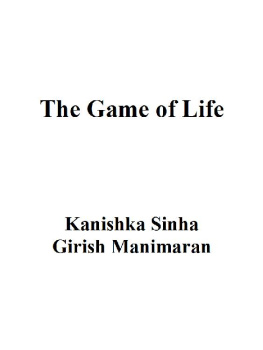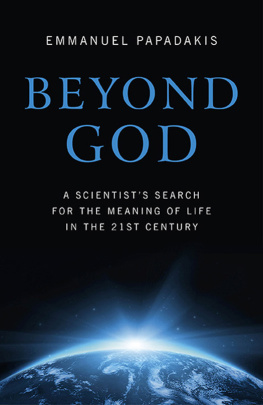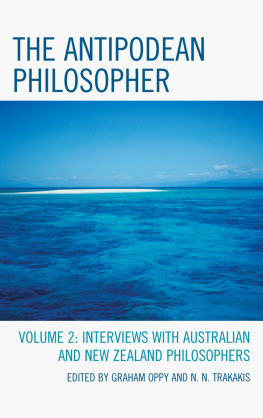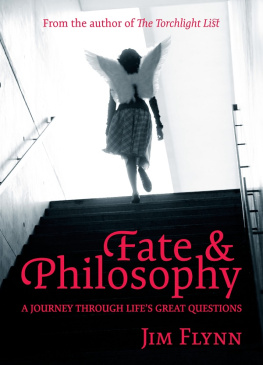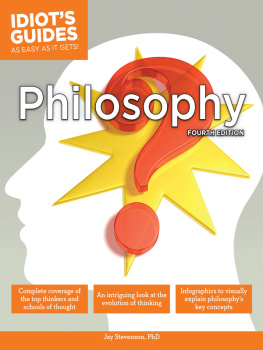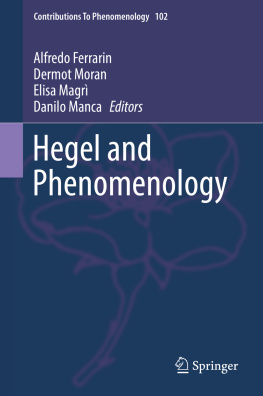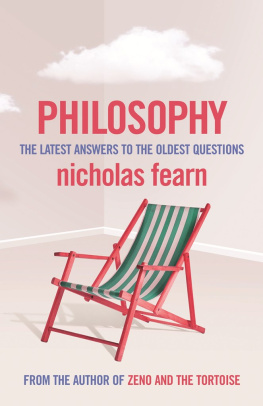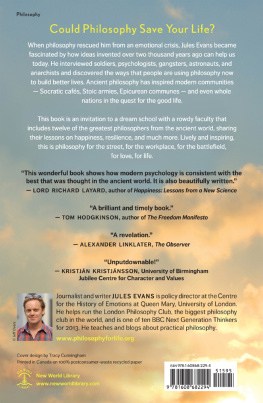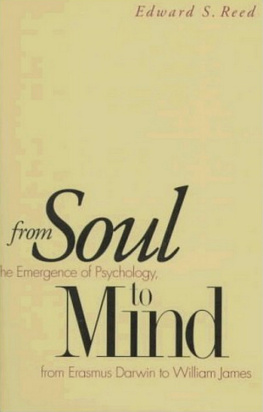The Game of Life
Kanishka Sinha
Girish Manimaran
Bluejay Books Pvt. Ltd.
A-8/76, Ist Floor
Sector 16, Rohini
Delhi 110 085
First published in 2014 by
Bluejay Books Pvt. Ltd.
Text copyright Kanishka Sinha, Girish Manimaran, 2014
Illustration copyright Avantika Sinha, 2014
The authors assert the moral right to be identified as the authors of this work.
All rights reserved. No part of this publication may be reproduced, stored in a retrieval system, or transmitted, in any form or by any means, electronic, mechanical, photocopying, recording or otherwise, without the prior written permission of the Publishers.
This edition is for sale in Indian subcontinent only.
Special arrangement with Stillwater consulting
Typeset by Eshu Graphic
CONTENTS
ACKNOWLEDGEMENTS
If I have seen further, it is only by standing on the shoulders of giants .
Isaac Newton
Wed like to dedicate this book to our first few clients. They gave Stillwater Consulting the opportunity to work with them they had to bear with our mistakes as we learned our trade, and yet were forgiving enough to provide the references that helped build our practice:
Anupama Mohan and Sujatha Sudheendran of Aditya Birla and the wonderful team at Gyanodaya learning centre; Sameer Bhakri, and Vishit Trivedi of CRISIL; Leena Nair, Anuradha Razdan, Sonal Jain and of course Amit Mehta of Unilever; Shaheen Mistri of Teach for India and Vandana Goyal of Akanksha; Vandana Scolt and Abhik B of Godrej; Nidhi Reddy of the Indian School of Business and Kirti Sharda of the Indian Institute of Management (Ahmedabad); Deepa Nailwal and Laveena Verma of Hindustan Times.
Also, a special thanks to the mentors who taught us:
Govind Rajan, Marcus Marsden, Mark Hemstedt, Ken Ito, Chris Gentry, Jim Cook, Beth Hollahan Gene Dunway, Gordon Sutton, Peggy O Neal, Cheong Meoh Ching, Julio Olalla, Terrie Lupberger, Graham Poston and Amelia Rosenberg.
And of course the people who read this book and gave us honest feedback:
Shivani Smith, Asha Kini, Taylor Jacobson and Ashok Gupta.
Wed like to thank the team at Bluejay books for taking the risk of promoting unpublished Indian authors like ourselves and for their support and guidance throughout the editing and publishing process. We felt a deep resonance with their desire to make their books affordable and widely available for book lovers throughout India.
Last, but definitely not least, our parents whom we love more than we can express in words.
This ones for all of you. Thank you.
INTRODUCTION
A journey of a thousand miles starts with a single footstep .
Lao Tzu
As executive coaches and specialists in the field of management education, weve had the privilege of working with many exceptional leaders across the world, and observed that they often needed to answer some seemingly straight forward questions before they could move on to the next level of effectiveness. Questions like:
What do I want to happen?
Whats actually happening?
What do I need to do to make what I want to achieve, actually happen?
However, weve also noticed that, in the course of jumping down these rabbit holes, they often found that they needed to answer harder and more fundamental questions before they could emerge with clarity on the other side. Questions such as:
What price do I need to pay to achieve my goals?
Am I willing to pay it?
What are the priorities of my life? What should they be?
What is a meaningful existence and how can I live one?
In accompanying our clients on these adventures, we looked around and found that others have travelled these paths before us, and we realised that theres a gap that needs to be bridged. On the one side lies the timeless wisdom that can be found at the core of the major teachings from around the world, recently supplemented by research done by bright, tenacious and passionate social scientists, philosophers and academicians on perhaps the most important subject of all how to live a great life.
On the other side lie the people who would use it if it were made accessible to them everyone on the planet.
But secular philosophy can often seem dry and irrelevant, and religious doctrine seems to have achieved its reach at the cost of dumbing down its core messages to dogmatic and, at times, seemingly arbitrary rules of morality and rituals.
We need a philosophy for the 21st century that incorporates the wisdom of our ancestors, leaves out superstitions born out of ignorance, and replaces it with logic based and research proven strategies for effective living. The aim of this book is to present our idea of what that grand unified philosophy for living might be.
We realise this is an ambitious goal, and perhaps even a reckless one. No one philosophy will appeal in its entirety to everyone. Our hope is that the book can at the very least serve as a thought provoking read that will help you in clarifying and crystallising your own philosophy of living, even if its through taking the opposing view on every single idea we present here.
The movement towards constructing a fresh and contemporary philosophy achieved a breakthrough in the 1950s in America. In the relative peace and prosperity that followed the great depression of the 1930s and the Second World War in the 1940s, Americans were able to refocus on education. Colleges and academia steeped in western rationalism were increasingly exposed to Hindu, Buddhist, Sufi, Taoist and Zen philosophies of India, the Middle East, China and Japan. At the same time, European scientists, writers and psychologists, who had come to the States to escape the devastation and persecution in their homelands, collaborated with their American counterparts to add their contributions to this dialogue. It was from this heady melting pot of conversations that the Human Potential Movement emerged to explore the questions What are humans capable of? What does an actualised person look like? What does a fulfilled life look like?
The exciting developments in psychology, in particular, have continued in the last few decades. For too long psychology had been synonymous with psychotherapy. The focus had been on fixing a very small sample of people with serious problems. Thankfully we are finally seeing the emergence of respected academicians such as Martin Seligman, Tal Ben-Shahar, Philip Zimbardo, Jonathan Haidt, Howard Gardner, Mihalyi Csikszentmihalyi, etc., writing popular books on positive psychology research on what it takes to live a great life, a subject relevant to a much wider population. Their conclusions are better supported empirically and therefore more grounded than the legion of mainstream popular self-help books or the well-intentioned but idiosyncratic advice from parents, teachers, friends, advertisers, politicians, religious leaders, etc.
It may be a while before fulfilment/ life skills/ emotional intelligence/ self-awareness is taught effectively in schools, colleges or even as part of a corporate training curriculum. Until then we will have to rely on popular non-fiction writers to bridge the gap between this knowledge and the general public. This book is our contribution in support of this endeavour.
The reason we have sub-titled the book a philosophy for living in the 21st century and not a philosophy of living is because we believe that the philosophy of an age is determined by the crisis of that age. The relevant crises might have been survival for Stone Age man, stability and order for the first city civilisations, heaven and hell for the medieval age, superstition for the scientists of the Enlightenment and productivity for the industrial era. We believe that the crisis of our age of material abundance is the crisis of meaning and, potentially linked to this, as we look out at the people who dont share in this world of abundance, the crisis of inequality.

